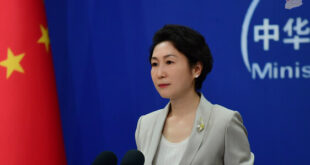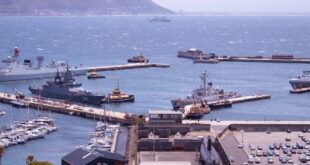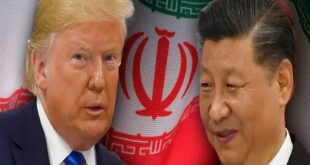The U.S. will leave a number of troops that is much larger than a typical security detail to guard its embassy in Kabul, along with American forces at the Kabul airport to help protect the vital facility for a time, the Pentagon confirmed Tuesday.
“Afghanistan is not going to be treated like any other nation where we have a Marine security guard. I mean, it’s Afghanistan, and we understand the dynamic nature of the security threat there,” Pentagon press secretary John Kirby told reporters during a briefing Tuesday.
Kirby added that the U.S. was “still working out some of the details of what the security situation is going to look like at the airport.”
“As you and I speak, there are U.S. troops at the airport. What the future of that looks like, we just don’t know right now,” he said.
The Pentagon would not confirm reports about the specific numbers of troops that will stay after the withdrawal is complete.
The Associated Press reported last week that roughly 650 U.S. troops are expected to remain in Afghanistan to provide security for diplomats after the withdrawal, which is set to be largely completed in a couple of weeks. Officials told AP that several hundred additional American forces will remain at the Kabul airport, potentially until September, to assist Turkish troops providing security.
The officials were not authorized to discuss details of the withdrawal and spoke to AP on condition of anonymity.
Since May 1, when the withdrawal began, the Taliban have doubled the number of districts they control, according to the Foundation for Defense of Democracies’ Long War Journal. The Taliban have grabbed hold of more than 80 districts in the past two months, for a total of 157 Taliban-controlled districts.
In an interview with VOA earlier this month, General Frank McKenzie, head of U.S. Central Command, said the U.S. is not planning to support Afghan forces with airstrikes after the U.S. troops withdrawal is complete. He added that counterterrorism strikes in Afghanistan will be limited to instances when attack plans have been discovered to strike the U.S. or allied countries, according to the top U.S. commander in the Middle East.
“That would be the reason for any strikes that we do in Afghanistan after we leave. (It) would have to be that we’ve uncovered someone who wants to attack the homeland of the United States, one of our allies and partners,” McKenzie told VOA.
Asked Tuesday whether the U.S. was reconsidering its post-withdrawal strategy to include defensive strikes against the Taliban, Kirby declined to “hypothesize” but stressed “the violence remains too high.”
“What we’d like to see is the Taliban returned to the peace process in a credible way. And as we see the events on the ground unfolding, it certainly calls into question the sincerity of their efforts to be a legitimate credible participant in the peace process,” he said.
Kirby added Tuesday that the U.S. troop withdrawal from Afghanistan will not necessarily mean the end of NATO’s train, advise and assist mission, but deferred to NATO for more details.
“It is my understanding that with the completion of the retrograde of U.S. forces, retrograde/withdrawal of U.S. forces from Afghanistan, excepting, of course, whatever is left behind to protect our diplomatic presence, that that does not necessarily mean the end of Resolute Support,” Kirby said.
The U.S. has vowed to continue financially aiding the Afghan military, along with providing “over-the-horizon” advising and aircraft maintenance support. NATO has said it will continue training Afghan forces in a location outside of Afghanistan.
 Eurasia Press & News
Eurasia Press & News



